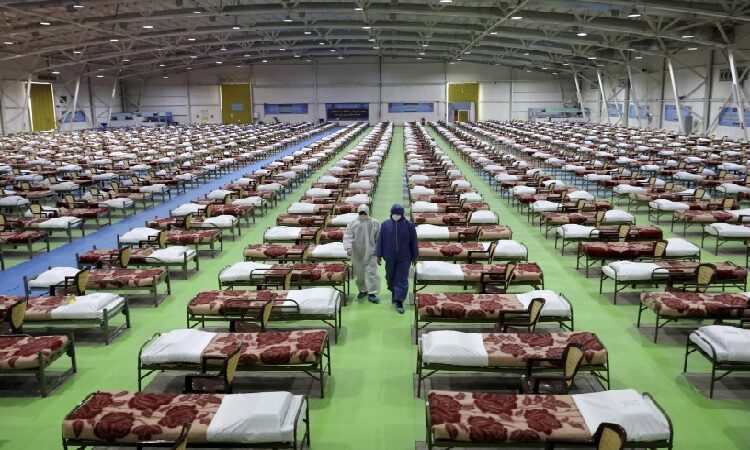A moral dilemma is a situation in which a person is faced with two mutually exclusive choices and urgent reasons to choose each of them. And in the case of COVID-19, medical personnel are being faced with the moral dilemma of deciding which person lives and which person dies; not choosing will likely result in both patients’ deaths.
Choosing between saving human lives and saving business ventures poses no such moral dilemma; lives and money cannot be equated. And yet this kind of zero-sum thinking has never been an impediment to individuals focused on political or financial aspirations no matter the human cost.
In early March, UK Prime Minister Boris Johnson — who on Friday tested positive for the coronavirus — asked the British people to take it “on the chin” and prepare to lose loved ones. These were not merely words of caution; he was stating the implications of his strategy to allow the virus to run unchecked in hopes of gaining “herd immunity” in the UK. The human cost of this sinister equation? Allowing the few to die so that the many could live.
Steve Hilton — an erstwhile advisor to UK former Prime Minister David Cameron — initiated just such a talking point on Fox News: “You know that famous phrase, ‘the cure is worse than the disease’? You think it’s just the coronavirus that kills people? This total economic shutdown will kill people.”
Texas Lieutenant Governor Dan Patrick then suggested, again on Fox News, that the elderly would be willing to die in order to save the economy for the young. He stated that, as a senior citizen, he himself would be “all in” given the choice. Patrick’s message was repeated and amplified by other commentators on Fox and other conservative media, turning what should have been a lonely voice of grotesque political malevolence into a Republican talking point. The implication was clear: the virus demanded human blood, and the elderly would be a fit offering.
Trump said on Monday that while ”the whole concept of death is terrible… there’s a tremendous difference between something under 1% and 4 or 5 or even 3%.”
Do we really need to say that hiding behind statistics and abstract concepts are human beings?
What all these arguments have in common is the assertion that there is a part of humanity that is disposable: That we can do away with the elderly, the infirmed, the unproductive, the socially and economically unfit. That is no exaggerated interpretation. The plan was best put by Jeremy Warner, none less than the associate editor and financial columnist of PM Johnson’s former employer, The Telegraph: “From an entirely disinterested economic perspective, the COVID-19 might even prove mildly beneficial in the long term by disproportionately culling elderly dependents.”
There are various ways to explain how certain political systems and their accomplices in the media have sunk into the dark waters of advocating the cull of our siblings, our parents, our grandparents, our children or our friends. But at this crucial hour of human history, those explanations are less important than asking a few key ethical questions: What are the moral intuitions that the past has taught us and on which we want to build our future politics? Do we truly want to allow our parents to die to secure a profit? Because ultimately, at stake is this: Who we are the day after the pandemic will largely depend on the choices we have made as a society during this crisis.
Read the full article (external link to Deutsche Welle)

